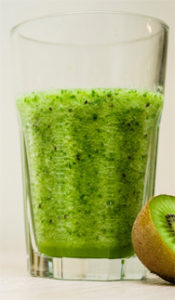Juicing For Zinc: Top Foods Rich in This Trace Element

This essential element (zinc, chemical symbol Zn) is extremely important for the normal functioning of your body. It is essential, despite the fact that the total quantity of zinc in the human body is small: no more than a couple of grams.
Experts point out the importance of consuming foods rich in zinc, especially if you want to maintain good health, because even a small Zn deficiency can be alarming and may lead to various health issues.
To be clear, I don’t take Zn supplementation, and I don’t think you shouldn’t too, that is, unless your meals are deficient in zinc rich ingredients. Even then, it is far better to include Zn rich foods on your menu then to take Zn supplements. Taking too many unnecessary supplements can easily throw your body out of balance, which is never a good situation to find yourself in.
 Therefore, it would be wise to consume foods rich in zinc on a daily basis, and especially during the winter season, given that zinc is related to an additional benefit: it helps prevent viruses (and flu infections) from penetrating into your body.
Therefore, it would be wise to consume foods rich in zinc on a daily basis, and especially during the winter season, given that zinc is related to an additional benefit: it helps prevent viruses (and flu infections) from penetrating into your body.
In following, you will find out about the biological role of zinc in the human body, why it is so important, which foods are rich in zinc, and other important facts about this mineral.
Table of Contents
Zinc For Immunity
Zinc in the human body stimulates the formation of white blood cells in the bone marrow. It also plays a role in the formation of the T-lymphocytes, which are a type of blood cells (lymphocytes) necessary for active defense against pathogens for cell-mediated immunity.
Zinc also helps prevent inflammation on a cellular level. It suppresses the action of viruses by preventing their propagation through mucous membranes. All in all, foods rich in zinc will help you prevent infections, colds, and flu, but they will also make it easier to deal with inflammations that you may already have.
 People with chronic lack of zinc are prone to cancer. This mineral also acts as an antioxidant (neutralizes the effects of free radicals in the body). In addition, zinc stimulates blood production, which is extremely important if you have reduced red and white blood cells count.
People with chronic lack of zinc are prone to cancer. This mineral also acts as an antioxidant (neutralizes the effects of free radicals in the body). In addition, zinc stimulates blood production, which is extremely important if you have reduced red and white blood cells count.
Lack of zinc has been linked to breast, lung and ovarian cancer, and leukemia. Getting enough zinc from food is therefore very important, and we will indicate how to do that the right way below.
Zinc is Useful For the Brain
The strong antioxidant properties of zinc facilitate the elimination of toxins and prevent their accumulations in the body. This is important in light of the fact that many neuro-degenerative issues, like Alzheimer’s disease, are related to the accumulation of toxins and heavy metals in the brain.
Foods that contain zinc also help maintain the normal structure of the brain and the vitality of the central nervous system. Zinc has also been shown to have a positive effect on the development of baby’s brain. Therefore it is very important to include zinc during pregnancy via proper nutrition.
According to a study recently published in Clinical Nutrition, zinc supplementation plays an essential role in the proper functioning of the thyroid gland. It was observed that the status and serum levels of the thyroid hormone levels were improved after six months of Zn supplementation.
Without the proper functioning of the thyroid gland, the body cannot convert the inactive T4 hormone to the active T3 hormone. A part of the brain called hypothalamus needs this mineral for the proper signaling to the pituitary gland to activate the thyroid gland. This means that people diagnosed with zinc deficiency, are most likely to suffer from disrupted thyroid function.
Finally, zinc rich foods are essential for people diagnosed with diabetes. Zinc enhances the function of the pancreas, helping to produce zinc-insulin complex in the pancreatic cells. When there is not enough Zn in the body, the person may suffer from poor regulation of diabetes. Diabetics have half the amount of zinc in the pancreas as compared to the people without this disease.
Zinc For Potency and Fertility
This trace element is crucial for the health of the testicles, and for the optimal number, shape, and mobility of the sperm. It protects the DNA in reproductive cells, preventing their damage, and increasing the odds of getting pregnant.
Zinc is also known as a mineral protector of the prostate. Zinc in the body is an important mineral for proper functioning of sweat glands, so it is effective in preventing and treating acne.
Symptoms of Zinc Deficiency
The Standard Western Diet is heavily deficient in many important vitamins and minerals, including zinc. If you are buying the majority of your meals in a supermarket choosing highly refined packaged industrial food, chances are you are already developing Zn deficiency.
There are several warning signs of zinc deficiency, such as, damaged fingernails (white flecks) or slow nail growth. As your nails and hair constantly grow, they need a steady supply of zinc to support this growth. If that’s not the case, you will notice changes in the outer appearance of your hair, nails, and skin. You may develop a tendency of frequent colds, and your skin may be overly dry.
Furthermore, severe zinc depletion may lead to lose of appetite and weight drop, you may get prolonged stools very often, you may find that your eyes are difficult to adjust to darkness. Wounds may be slow to heal, you may be prone to dermatitis and acne.
The deficiency of this important mineral can also take a toll in the form of poor concentration and memory, as well as infertility and impotence in both sexes.
One or two of the above symptoms, of course, are not enough to ascertain chronic lack of zinc in your body. But if you recognize a number of these warning signs at the same time, especially during long periods of time, it would be wise to consult with your doctor and check your zinc levels.
If you are Zn deficient, the solution is simple: increase the intake of food rich in Zn! Let’s see what the recommended dietary allowances of zinc are.
Zinc: RDA, Recommended Dietary Allowances
- Men: 11 mg
- Women: 8 mg
- Pregnant women: 11 mg
- Lactating women:12 mg
- Between 14 and 18 years of age: 9 mg – female, 11 mg male
- Between 9 and 13 years of age: 8 mg
- Between 4 and 8 years of age: 5 mg
- Between 1 and 3 years of age: 3 mg
- Between 7 and 12 months of age: 3 mg
- Between 0 and 6 months of age: 2 mg
Source: ods.od.nih.gov
As with the other trace elements, too much and too little of them is equally not good.
The tolerable daily intake level of Zn for adults over 19 years of age is 40 milligrams. Take this into account, especially if you supplement with Zn pills.
Types of Food Rich in Zinc
Zinc rich foods are very important for the functioning of the entire body. Whenever you can, you should use natural sources, not just for zinc, but also for the other essential minerals. Natural sources are superior to supplements in every respect!
In short, Zn rich foods can be found in both animal and plant sources. Animal foods include eggs, seafood, and dairy (Swiss cheese, Cheddar cheese, kefir, yogurt).
Plant zinc sources include nuts (especially cashews, almonds, chickpeas), beans, wheat germs, whole grains, pumpkin seeds, spinach, oatmeal, nutritional yeast, green beans, peas, and mushrooms. As an added bonus, most of these foods are also rich in magnesium and selenium.
We have already seen that, in addition to participating in numerous metabolic processes, zinc supports the nervous system, skin, hair, and vision. But zinc works very well together with one important vitamin: Vitamin C.
So, it might be a good idea to pair up zinc and Vitamin C. They are a powerful tandem because together they fight infections and help the immune system become much stronger and more efficient. This combination is especially recommended for the cold winter months, as it will provide a very useful shield against many aggressive infections and colds.
Foods rich in zinc, as well as supplementation with zinc and vitamin C, are recommended after injuries, surgery, or burns. This helps in the recovery of the mucous membranes, the skin, and the connective tissues. The reason is simple: vitamin C together with zinc plays a crucial role in collagen synthesis.
Here is the extended list of zinc rich foods:
| Food | Milligrams (mg) per serving |
Percent DV* |
| Breakfast cereal, fortified with zinc | 3.8 | 25 |
| Baked beans, ½ cup | 2.9 | 19 |
| Yogurt, 8 ounces | 1.7 | 11 |
| Cashews, 1 ounce | 1.6 | 11 |
| Chickpeas, ½ cup | 1.3 | 9 |
| Cheese, 1 ounce | 1.2 | 8 |
| Oatmeal, 1 packet | 1.1 | 7 |
| Milk, 1 cup | 1.0 | 7 |
| Almonds, 1 ounce | 0.9 | 6 |
| Kidney beans, ½ cup | 0.9 | 6 |
| Chicken breast, ½ breast | 0.9 | 6 |
| Cheese, cheddar or mozzarella, 1 ounce | 0.9 | 6 |
| Peas, ½ cup | 0.5 | 3 |
| Flounder or sole, 3 ounces | 0.3 | 2 |
Source: ars.usda.gov
Zinc Rich Juices and Smoothies
 As there are some good source of zinc among the fruits and vegetables, it is not too hard to prepare delicious freshly squeezed juices or smoothies rich in zinc.
As there are some good source of zinc among the fruits and vegetables, it is not too hard to prepare delicious freshly squeezed juices or smoothies rich in zinc.
For example, you may base your juices on spinach, asparagus, beets, broccoli, Swiss chard, and green peas. Or you may add some nuts in your green smoothies afterward, for example, cashews, pumpkin seeds, or sesame seeds.
And, of course, instead of water you may use yogurt or kefir as a base of your healthful drink!
Here is an example recipe for a great Zn rich smoothie:
Ingredients:
- 2 Carrots
- 1 Apple
- 1 cup Baby Spinach
- 1 slice fresh Ginger
Directions:
After the smoothie is prepared, add some raw cashews, sesame seeds, and pumpkin seeds. Enjoy!
Conclusion
This essential trace element plays a vital role in strengthening your immune system.
Proper zinc intake, preferably through food, can diminish diabetes complications, also improving the function of the organs of taste, sight, and smell.
You have a huge variety of ingredients containing Zn to choose from, so supplementation is not needed.

Leave a comment